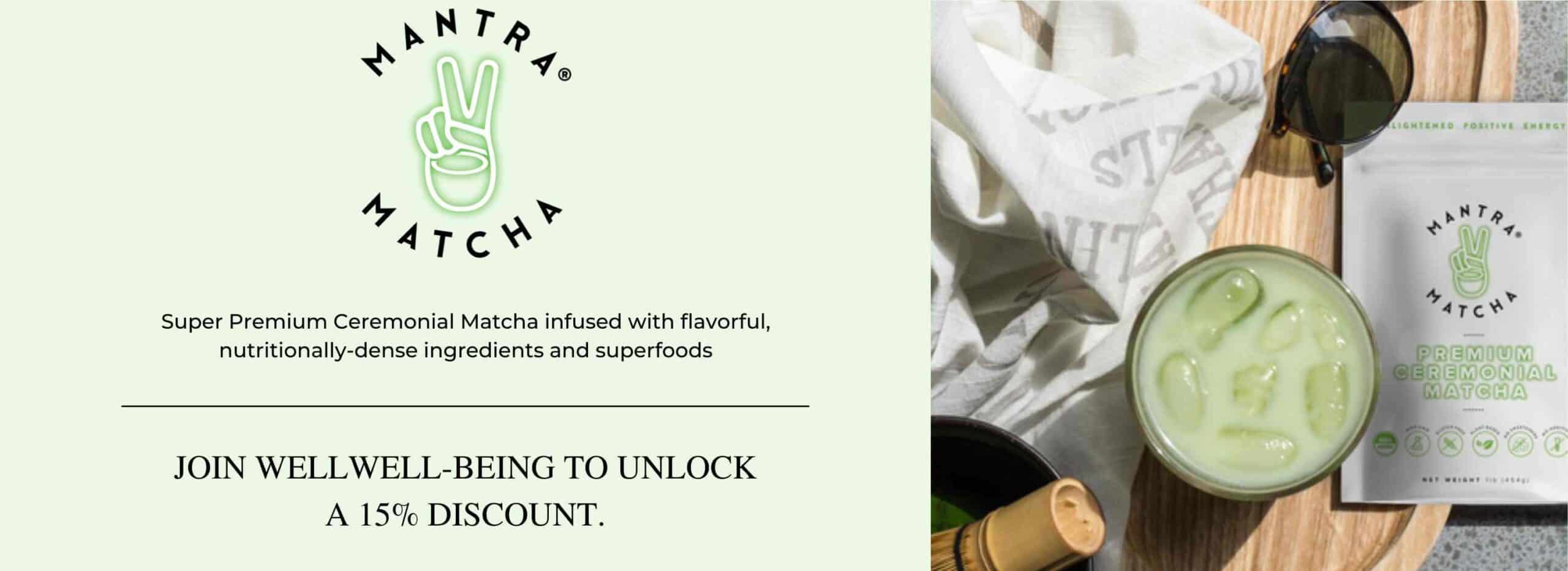The Skinny:
Those in search of the next health elixir apparently are going green in a big way. No, their quest isn’t leading them to sign up with Green Peace or launch some environmental protection organization. Instead, they’re drinking matcha, a powdered Japanese green tea made from dried tea leaves. Culinary-grade matcha also can be used in lattes and custards. The alleged benefits of this ancient drink are many. Admittedly, more research is needed to fully back up these claims. What is known is that matcha is low in calories at 15 per two-ounce powdered serving and contains limited amounts of carbohydrates, fiber and protein. It has no fat, sugar or sodium. What it does hold, however, is caffeine: about 70 mg per cup. Read on to get the lowdown on matcha’s supposed benefits.
The Slate:
Weighty Matters
Thanks to Matcha being high in caffeine and low in calories, it has a reputation as a weight-loss aid. Studies on humans have yet to support this notion, but research on mice found matcha reduced inflammation, aided weight control and fostered better glucose metabolism and lipid profiles.
Good Mood Maker
Matcha is believed to improve mood and mental focus thanks to its high levels of the amino acid l-theanine, which alters brain dopamine and serotonin levels. Initial research also indicates that matcha’s antidepressant properties are effective in relieving the physiological effects of social isolation stress in mice.
Cognitive Support
The high caffeine content in Matcha can help increase alertness and improve cognitive performance. Studies have shown that the tea’s caffeine, theanine and catechins specifically improve mental ability. Other recent research claims that epigallocatechin gallate, matcha’s main catechin, can even help prevent neurological disorders.
May Fight Cancer
Matcha’s antioxidant and anti-inflammatory properties also offer hope that it can help fight cancer. Limited research on lab cell cultures suggests the tea has a significant ability to inhibit metastasis, proliferation and viability of breast cancer cells. More research, however, is needed to confirm these findings.
Skin Health
This drink can even supposedly support skin health. Match’s anti-inflammatory action aids irritated skin, while its tannins can also help reduce sebum production in oily skin. Its impact is so effective, matcha can provide benefits just by smearing it directly on the skin.
Heart Health
The high level of potassium and virtually nonexistent amount of sodium in matcha appears to make it good for blood pressure. Research has established a link between low-to-moderate consumption of green tea and a reduced risk of coronary heart disease.
Liver Issues?
Limited reports have surfaced that overconsumption of green tea can damage the liver; however, these concerns may be overstated. Matcha may, in fact, help support liver health by fighting obesity and relevant metabolic disorders seen through the gut–liver axis.
Potential Problems
For all its potential benefits, users need to be aware that matcha’s caffeine may cause side effects like nervousness, anxiety, stomach upsets or disrupt sleep. Extremely large amounts of the tea may even disrupt iron absorption or possibly introduce toxic elements if the tea is grown in contaminated soil. Those taking stimulant medication or who have heart rhythm issues or heart disease should consult their doctor before drinking.
Eyes Up:
Are you a matcha proponent? Tell us why at info@wellwellusa.com.
WellWell editors independently identify services and products of interest. If readers purchase anything through the associated links, WellWell may earn a commission, which goes to support our work. Learn More.













